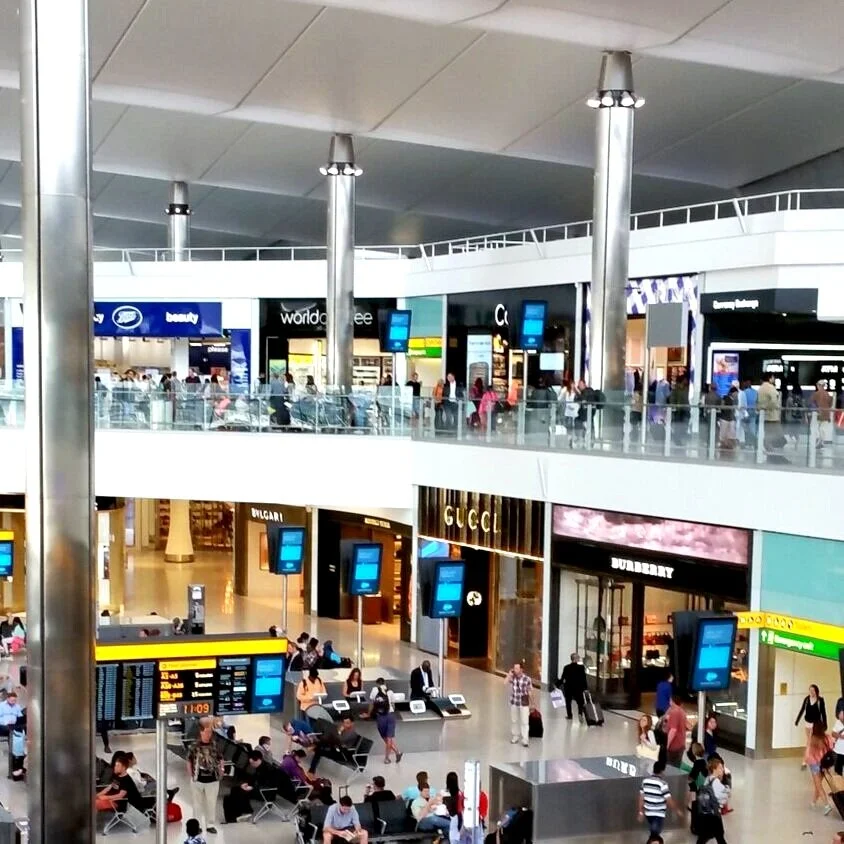Insights
US-Canada tensions
May 2025
As tensions between the US and Canada rise and transborder passenger demand weakens, Canadian airlines have responded by making significant adjustments to their 2025 scheduled capacity. Skylark analyzed the changes the airlines have made in their published schedule data between January and May 2025, in which some capacity has been reallocated from transborder markets to markets with higher demand.
US Airlines Q1 2025
May 2025
As the US airlines released their First Quarter earnings, Skylark examined the major themes, common challenges, and strategic responses to a quarter in which demand started strong but weakened as it progressed.
sustainable aviation fuel
February 2024
In late 2023, Virgin Atlantic became the first ever airline to power a transatlantic flight solely using sustainable aviation fuel (SAF). This was the culmination of months of planning and signified a milestone in the development of the new technology, with it comprising an ever-increasing proportion of the global aviation fuel mix. The aspirations for the fuel are sky-high, but are they realistic?
Skylark discusses the future plans for SAF, and the extent to which it truly has the potential to minimise the carbon output of the aviation industry.
737-max 9 grounding
January 2024
Skylark discusses the current and future impacts the FAA’s Emergency Airworthiness Directive. This was issued following the in-flight loss of a mid-cabin door plug on an Alaska Airlines flight, and ordered the temporary grounding of 171 Boeing 737-9 Max aircraft across the US.
Airport microgrids
November 2023
With a growing emphasis on sustainable aviation, airports have begun examining the use of alternative power sources. Several airports have already installed microgrids. Despite the benefits, microgrids require significant capital investment. While there is some public funding for investment in airport microgrids, more funding is needed, creating an opportunity for public-private-partnerships.
Skylark discusses the market opportunity for an entity to form a one-stop shop incorporating airport knowledge, technical expertise, and financing, to provide an airport specific microgrid solution.
Aviation Travel disruptions
August 2022
In the aftermath of the pandemic, the aviation industry has been in the headlines for all the wrong reasons, with stories of delays and cancellations, lost luggage, and missed flights. A blame game has erupted between airports, airlines, handlers, and Governments.
Skylark has carried out a survey of industry participants together with some independent analysis in an attempt to discover the main causes of the disruptions in an impartial way.
In Depth Analysis: Business Travel Trends
March 2022
Following unprecedented travel disruption during Covid-19 pandemic, the business travel sector has been particularly slow to recover. Skylark was engaged by the UK Civil Aviation Authority to conduct a study of trends in the business travel sector to aid their assessment of the levels of business travel during Heathrow Airport’s H7 regulatory period.
In this report Skylark examines:
Short-term impacts and recovery trends following the Covid-19 pandemic including the correlation between Covid-19 case numbers and air travel, and the effects of passenger confidence.
Long-term trends including the effect of technology on various business activities; environmental pressures to reduce business travel; and employee willingness to travel.
The impact on passenger traffic at London Heathrow including long-haul vs. short-haul business travel in the context of Heathrow’s position as a UK and European hub.
Brexit: Changes to the Aviation Industry
January 2021
On 24th December 2020, the European Commission reached an agreement with the United Kingdom (“UK”) on the terms of its future cooperation with the European Union (“EU”). On 30th December, British MPs voted to approve the new legislation agreement with the Commons approving the measure by 521 votes to 73. The UK officially left the EU on 1st January 2021, with the new legislation agreement commencing.
Skylark explores how the new Brexit withdrawal agreement will affect the aviation industry, focusing on four key areas: airports, airlines, passengers, and cargo.
UK Airport Retail Post Brexit: Upside or Downside?
December 2020
The UK exits the EU on the 1st of January 2021. In a surprise move the UK government announced that, from that date, all UK airports will reinstate duty-free sales to EU passengers. They will also remove the VAT exemption from all passengers, and will remove VAT returns for overseas visitors purchasing goods in British high-street stores.
In this white paper, Skylark’s Marcus Balmforth and Jemima Scott examine the implications of the removal of the airport VAT exemption, and the return of airport duty-free allowances.
Improvement in Passenger Journey Efficiency in the United States following Exogenous Shocks
March 2020
Since 2000, the United States airline industry has faced two major corrections due to exogenous shocks: (1) following the terrorist events of September 11, 2001, and (2) following the Global Financial Crisis of 2008, the industry is currently in the midst of a third with the impact of COVID-19 on the economy and air travel. These events had significant impacts on the US airline networks, primarily through consolidation of airlines and the elimination of under-performing hubs and routes.
Prior to the virus’s emergence, Skylark's Kenneth Currie and Kelly Fleszar were investigating the evolution of US airline network strategies and its impact on the availability of non-stop services for passenger.
Outlook for the Brazilian Aviation Market
November 2019
Although Brazil’s political and economic crisis caused passenger traffic to fall in 2016, there has been a sustainable recovery within the Brazilian aviation market as demand at Brazilian airports is in its third year of sustained growth.
Skylark’s experts Kenneth Currie and Luciano Nunes discuss the recovery and outlook for the Brazilian aviation market.











